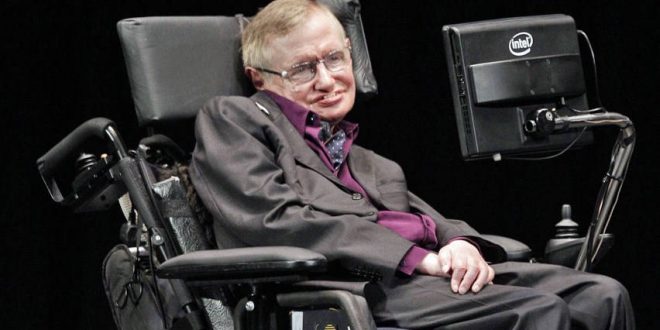Physicist Stephen Hawking has issued yet another warning regarding how aliens could be incredibly dangerous and why we’d be foolish to try and communicate with them.
Last month, Russian astronomers with the Search for Extraterrestrial Intelligence (SETI) Institute detected a promising microwave signal that seemed to emanate from deep space. Subsequent review, however, found that the transmission was likely a military signal originating from our own planet.
While this signal may not have been proof of life beyond Earth, world famous cosmologist Stephen Hawking maintains that the search must continue, as it is critically important that we find aliens — before they find us.
“If intelligent life has evolved, we should be able to hear it,” he says on his upcoming special, “Stephen Hawking’s Favorite Places,” according to CNET. “One day we might receive a signal from a planet like this, but we should be wary of answering back. Meeting an advanced civilization could be like Native Americans encountering Columbus. That didn’t turn out so well.” Hawking frequently relies on the Columbus metaphor to warn about the potentially disastrous consequences of coming into contact with an extraterrestrial civilization.
Others disagree, including Doug Vakoch, president of METI International, who observes that it may be pointless to worry about hiding from aliens since humanity has been sending radio and television transmissions out into space for nearly a century.
Still, for the time being, Hawking’s may concern may be a threat that is more terrestrial-based. “It is of great concern that the Republican nominee for president has advocated US withdrawal from the Paris Accord. A ‘Parexit’ would send a clear signal to the rest of the world: ‘The United States does not care about the global problems of human-caused climate change. You are on your own,'” reads a post signed by 375 scientists, including Hawking. “The consequences of opting out of the global community would be severe and long-lasting – for our planet’s climate and for the international credibility of the United States.”
Agencies/Canadajournal
 Canada Journal – News of the World Articles and videos to bring you the biggest Canadian news stories from across the country every day
Canada Journal – News of the World Articles and videos to bring you the biggest Canadian news stories from across the country every day



